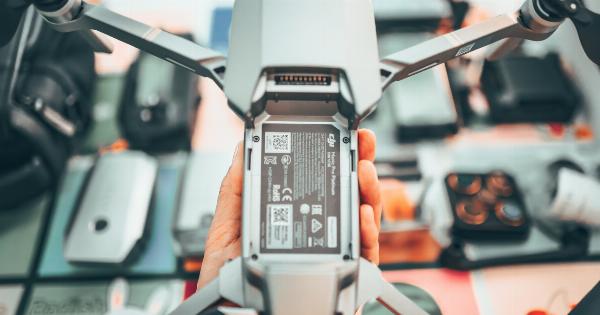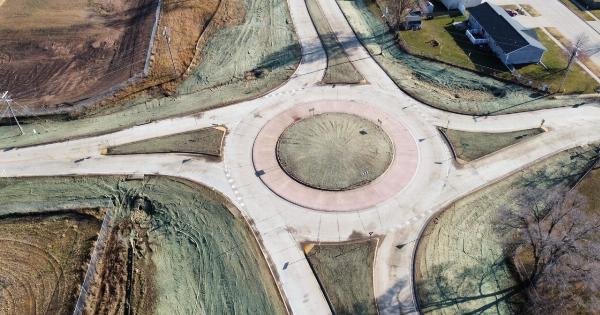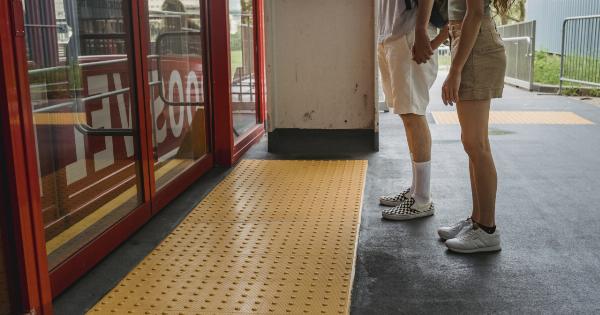We live in a world that is becoming increasingly interconnected and monitored. With the rise of technology, our every move can be tracked, recorded, and analyzed.
One of the most alarming aspects of this surveillance culture is the non-invasive eye that observes us – the ever-watching cameras that have become ubiquitous in our society. In this article, we will explore the implications and concerns surrounding this pervasive eye and its impact on our privacy and freedom.
The Rise of Surveillance Cameras
In recent years, the number of surveillance cameras has seen an exponential increase. They can be found in public spaces, businesses, residential areas, and even in our own homes.
These cameras are capable of capturing high-resolution images and videos, allowing them to monitor our daily lives and activities.
While the presence of these cameras is often touted as a means to enhance security, they do raise questions about our fundamental right to privacy.
We are constantly being watched and recorded, and it is becoming increasingly difficult to escape the prying eyes of these devices.
The Impact on Privacy
Privacy, once considered a basic human right, is now being eroded by the non-invasive eye of surveillance cameras. Our movements, actions, and even our facial expressions are captured and analyzed without our consent.
This invasive monitoring raises concerns about the extent to which our society values personal liberties.
Furthermore, the data collected by these cameras can be stored indefinitely, creating a comprehensive and permanent record of our lives.
This accumulation of personal information poses a significant risk to our privacy, as it can be misused or abused by those in control of the surveillance systems.
The Illusion of Security
Surveillance cameras are often portrayed as a tool to enhance public safety and deter criminal activities. However, their effectiveness in achieving these goals is questionable.
While it is true that cameras can capture evidence of crimes and aid in investigations, they do not necessarily prevent criminal acts from occurring in the first place.
Studies have shown that the presence of surveillance cameras can lead to a false sense of security. People might feel safer, but their actual safety might not be greatly improved.
Criminals can adapt to these systems by wearing disguises, avoiding areas with cameras, or finding alternative methods to carry out their illicit activities.
A Culture of Surveillance
Living in a society where we are constantly being observed can have profound psychological effects. The knowledge that we are being watched can lead to self-censorship and a loss of individual freedom.
It creates an environment where conformity becomes the norm, and acts of dissent are discouraged.
Moreover, the power dynamics between those who monitor and those being monitored are skewed. The control over our personal information rests in the hands of a select few, who may have their own agendas or biases.
This unequal distribution of power can lead to discrimination and abuse.
The Need for Transparency
As the non-invasive eye continues to watch us, it is crucial that there is transparency surrounding surveillance systems. The public should have access to information about the number, location, and purpose of these cameras.
Policies and regulations should be in place to ensure that the data collected is used responsibly and solely for purposes of public safety.
Additionally, there need to be mechanisms for accountability. Those who control and operate surveillance cameras should be held responsible for any misuse or violation of privacy.
Oversight committees and independent audits can help ensure that power is not abused and that the rights of individuals are protected.
The Future of Surveillance
As technology continues to advance, the capabilities of surveillance cameras will only grow.
Facial recognition technology, artificial intelligence, and predictive analytics are all being integrated into these systems, further raising concerns about the erosion of privacy.
We must proactively address these issues and advocate for a balance between security and personal freedoms.
We can demand stricter regulations, promote awareness about the implications of surveillance, and actively participate in public discussions surrounding these topics.
Ultimately, the non-invasive eye that observes us is a reflection of our society’s values and priorities.
It is up to us to decide what kind of world we want to live in – a world where our every move is monitored, or a world where privacy and freedom are respected.































